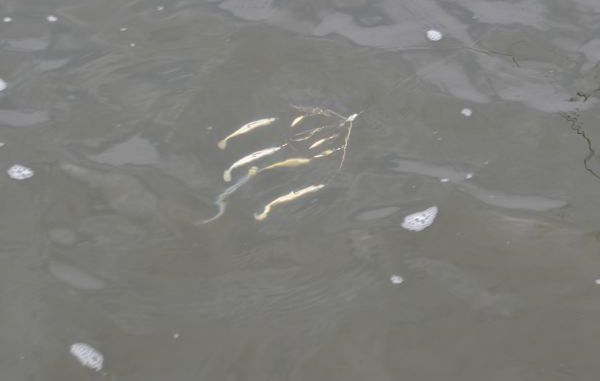
The lure assembly dubbed the Alabama Rig burst upon the bass fishing world in 2011 when pro fisherman Paul Elias won the $100,000 FLW Tour Open on Lake Guntersville using it.
Originally called umbrella rigs, they have been in use for years by striped bass fishermen and saltwater anglers. And commercial king mackerel fishermen trollers used them off the Louisiana coast at least as far back as the 1980s.
Umbrella rigs, designed to mimic schools of small, vulnerable baitfish, were always trolling rigs — at least until part-time inventor/fisherman and full-time pipefitter Andy Poss of Muscle Shoals, Ala., came along.
Poss claimed to have come up with the idea while watching a tuna chasing a school of sardines on “The Blue Planet,” a BBC documentary series, rather than from the already much used umbrella rig.
He built his first Alabama rig designed for casting rather than trolling in August 2009 and filed for a patent on Dec. 12, 2010.
In 2011, he gave Elias a couple of his hand-built rigs.
In spite of being impressed with the rig when he tested it in his Mississippi backyard pond, Elias tied it on a rod and stuck the rod in a rod locker and forgot about it.
At the Lake Guntersville event, though, Elias was having a tough day.
He fished from 6 a.m. to noon without a bite from the largely suspended largemouth bass. While passing under a bridge, the thought crossed his mind that if the rig would work at all, it should work at that spot.
In four casts he caught 15 pounds of fish.
He went back to spots he where he had drawn blanks earlier that morning and another 20 fish.
That night he called Poss with a report and a question.
“Are you sure this thing is legal?” Elias asked.
Word spread fast after Elias’ big win. Poss quit his day job and began making and selling 200 rigs a day for $25 each from his home.
That November, he signed a three-year deal with Mann’s Bait Company to make and market the rig.
Then things began to fall apart.
Even though a patent was pending, imitators began making knock-offs of the rig, which is simply multiple wire arms that radiate like the spokes of a wheel out from a central line-tie or hard body.
Then the two major bass-fishing tournament organizers, BASS and FLW banned the rig in their competitions.
Many tournament anglers argued strongly in favor of the ban, probably because it helped equalize the playing field more.
The ban resulted in Mann’s declining to renew Poss’ contract when it expired.
“The tournament thing was really the nail in the coffin,” according to Scott Wall, a regional sales manager at Mann’s. “When the leagues banned it, that’s what killed the demand. Bass anglers are influenced by what they see the tournament guys fish with because that is what is promoted in the pages of magazines and TV shows.
“If you don’t promote it, they are not going to fish with it.”
Although Poss signed another agreement with a lure company, the experience has left him dispirited. Since high school, Poss wanted to be a professional fisherman, and he had fished the tournament circuit for 17 years.
“I really looked up to those guys,” he said. “But then you get in the business side of fishing — it was a really big letdown.”